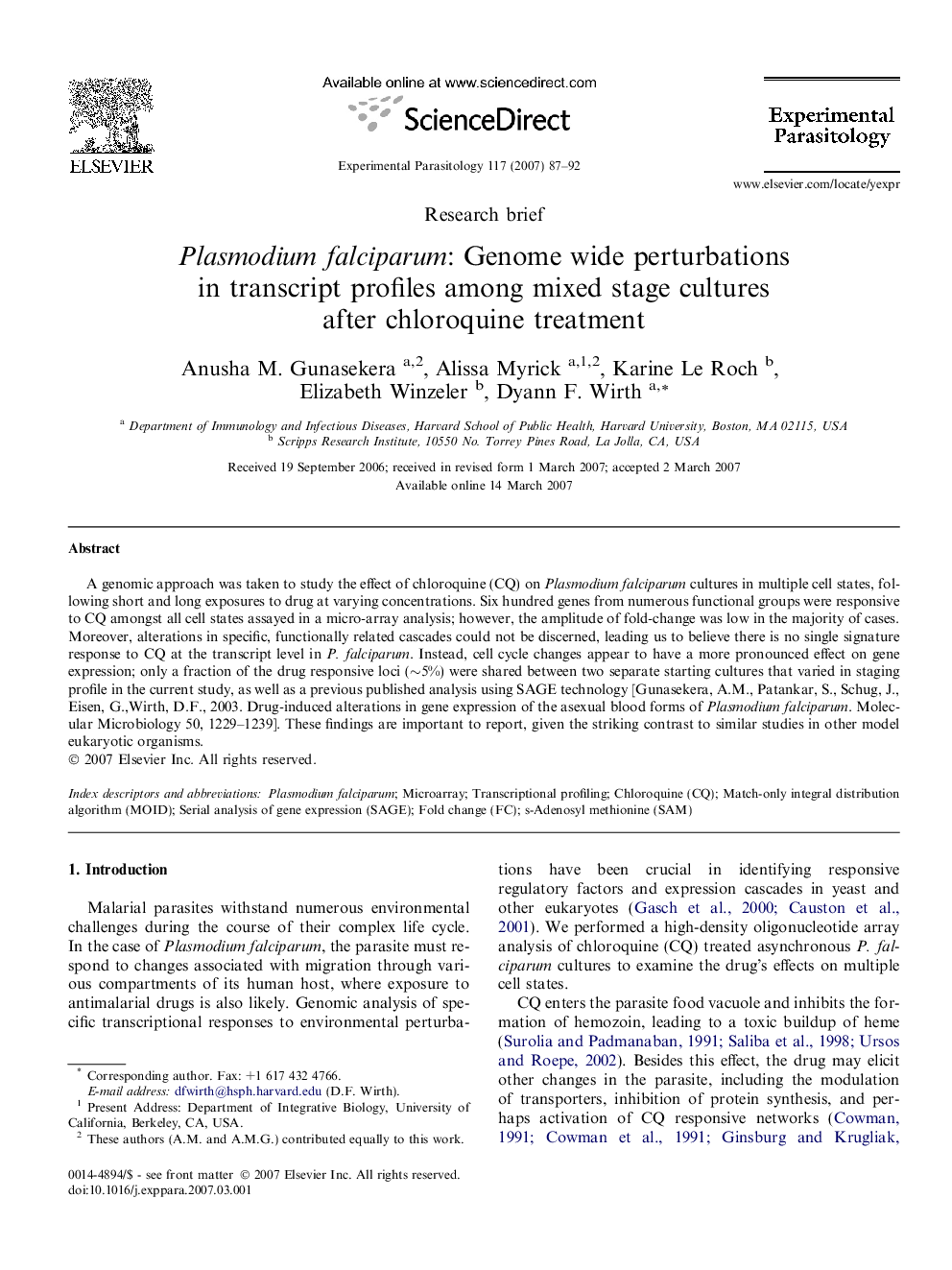| Article ID | Journal | Published Year | Pages | File Type |
|---|---|---|---|---|
| 4371663 | Experimental Parasitology | 2007 | 6 Pages |
A genomic approach was taken to study the effect of chloroquine (CQ) on Plasmodium falciparum cultures in multiple cell states, following short and long exposures to drug at varying concentrations. Six hundred genes from numerous functional groups were responsive to CQ amongst all cell states assayed in a micro-array analysis; however, the amplitude of fold-change was low in the majority of cases. Moreover, alterations in specific, functionally related cascades could not be discerned, leading us to believe there is no single signature response to CQ at the transcript level in P. falciparum. Instead, cell cycle changes appear to have a more pronounced effect on gene expression; only a fraction of the drug responsive loci (∼5%) were shared between two separate starting cultures that varied in staging profile in the current study, as well as a previous published analysis using SAGE technology [Gunasekera, A.M., Patankar, S., Schug, J., Eisen, G.,Wirth, D.F., 2003. Drug-induced alterations in gene expression of the asexual blood forms of Plasmodium falciparum. Molecular Microbiology 50, 1229–1239]. These findings are important to report, given the striking contrast to similar studies in other model eukaryotic organisms.
